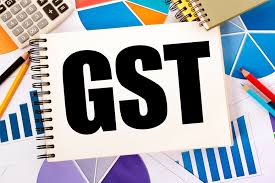GST clarity crucial for Indian fantasy sports industry to drive investments, FDI
NEW DELHI: With the exponential growth of fantasy sports and the potential benefits to India's digital economy, a new whitepaper recommends providing tax certainty to the industry as well as ensuring an optimal tax rate as essential factors for attracting investments, FDI, and ensuring the growth of tax revenue for the government.\
The white paper from Tax India Online (TIOL) said fantasy sports have been on the front end of innovation and investment in the last few years. It is imperative for regulators to take stock of the potential these sectors hold while ensuring their revenues are taxed based on a valuation model that distinguishes between games of skill and games of chance.
It said India is the world's largest fantasy sports market with around 13 crore Indian users, beating the US’s 50-year-old status as the world leader. India is also home to the world’s largest fantasy sports operator and more than 150 operators providing online fantasy sports. According to the NITI Aayog draft guidelines on regulating the fantasy sports industry, with the significant growth of this sector in recent years, it has tremendous potential to continue attracting foreign investment, increase innovation, and generate employment in India. With rapidly surging demand, a large market of sports fans and a complementing pool of engineering development talent in India is on the cusp of becoming a global hub for this sunrise industry.
According to data from the TIOL report, the Fantasy Sports industry has generated ₹4700 crore in revenue in FY21 which is projected to grow to ₹9,500 crore by FY23. In terms of investment potential, the Fantasy Sports industry has already attracted ₹10,000 crore in FDI as of 2021, with another ₹15,000 crore in FDI projected over the next three years. Fantasy Sports operators have so far paid ₹1,500 crore in taxes for FY21 (GST + TDS + Corporate Tax), which is estimated to amount to ₹15,000 crore between FY20–FY24.
A PwC report published in 2019 estimated the GST component contributed in the next five years to be approximately ₹3,000 – 3,500 crore. In terms of employment, the fantasy sports sector has already generated 3,000–3,400 jobs directly and indirectly and is projected to contribute 12,000 additional jobs to India in the next 2-3 years
As per a report compiled by the Internet & Mobile Association of India (IAMAI), the industry pays 18% GST on Platform Fee or GGR collected (consideration amount against the supply of services by the online fantasy sports operators which is the subject matter of levy of tax under the GST Law).
The report further mentions that in other nations, the levy of VAT or GST is confined to the Gross earnings (GGR) of the platform owners. GST on Gross Gaming Revenue would be consistent with global practices. It is important to note that multiple High Courts and the Hon'ble Supreme Court of India has adjudged Fantasy Sports as a game of skill and has accorded protection as a legitimate business under Article 19(1)(g) of the constitution of India.
The industry expects that the current taxation of 18% on platform fees or GGR would continue, which is a prevalent practice globally as well. The report recommends that no changes are made to the current taxation regime for fantasy sports and that the GoM utilize this opportunity to lend further clarity on the matter.
Download our App to get knowledge updates: https://play.google.com/store/apps/details?id=com.app.gstmitra



Comments
Post a Comment